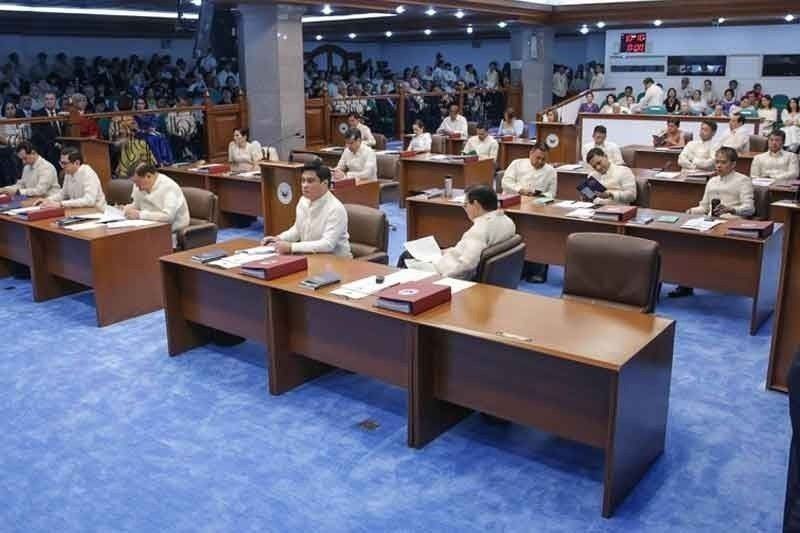Senators back raising age of sexual consent from 12 to 16

MANILA, Philippines — Senators yesterday agreed to a proposal to raise the age of sexual consent from 12 to 16 years.
Sen. Richard Gordon, chairman of the Senate committee on justice and human rights, said a committee report will be submitted on Monday so it can soon be tackled in plenary.
“With the position papers submitted, would you agree Senate Majority Leader Juan Miguel Zubiri, Sen. Imee Marcos, that we can already come up with a law that we can pass?” Gordon asked, to which Zubiri replied to approve the matter in the committee level.
Under Republic Act 8353 or the Anti-Rape Law signed in 1997, sexual intercourse is automatically considered statutory rape when the victim is under 12 years old.
Although the law also criminalizes sex with minors under 18 years of age, it only does so if consent is not present or if the act involves force, threat, or intimidation.
Sen. Rissa Hontiveros said she would push for a “Romeo-and-Juliet” clause to address the punitive effects on young couples who are close in age.
“There shall be no criminal liability on the part of the perpetrator, if the victim is between 14 and 18 years of age; age difference is not more than four years; and the sexual act in question is proven to be consensual, non-exploitative, and non-abusive,” Hontiveros said.
Hontiveros also urged her colleagues to fast-track the passage of a measure that seeks to raise the age of sexual consent as the number of teen pregnancies have soared.
“At present, a 13-year-old girl can be forced to have sex with her uncle and she needs to prove that she did not consent. Our laws should protect the most innocent, but we’ve thrown thousands of Filipino girls to the wolves,” Hontiveros said.
Senate Bill 163 seeks to raise the age of sexual consent from 12 to 18 years old, to conform with the current legal age.
Under the proposal, all sexual acts with minors will be treated as statutory rape, subject to the close-in-age exemption. Sexual acts between consenting minors are exempted from the law.
Hontiveros cited data from the Center of Women’s Resources that seven of 10 rape victims are children.
“Every 53 minutes, a woman or child gets raped and their perpetrators get away with the crime because of a lapse in the law that can and must immediately be corrected,” she said.
During a Senate hearing, the United Nations Population Fund (UNFPA) said the numbers of unintended pregnancies, which reached 760,000 during the quarantine, were an “epidemic in and of itself.”
Hontiveros said her office constantly receives reports of online sexual exploitation of children.
“We’ve remained the hotspot for sexual violence. It is crucial that agencies disaggregate the data so we can appropriately implement policies and protect as many as we can,” she said.
Citing data from the Commission on Population and Development (PopCom) that 40 to 50 girls below the age of 14 give birth every week, Hontiveros said these girls become biologically and economically burdened with a task they are not ready to handle.
“Not only are the physical and mental health risks heightened, but so are the financial. The teen pregnancy emergency will widen the gaps of inequality and poverty exponentially,” she said.
The fund allocated in the 2021 proposed budget for the Philippine Commission on Women (PCW) is almost 50 percent lower than what was requested without adjustment to the increased violence against women during the pandemic.
“New data shows that pandemic and economic stress on families put girls at greater risk for violence. Let’s give the agencies what they need to address these rising issues,” Hontiveros said.
- Latest
- Trending






























